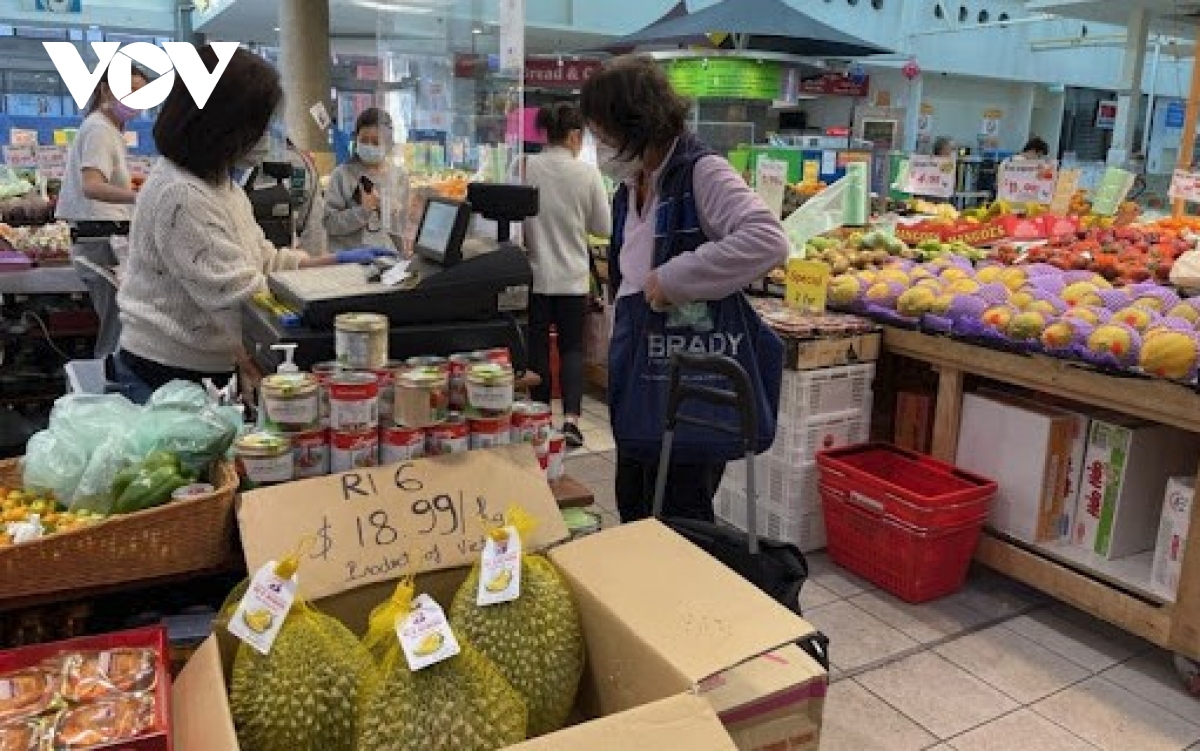Vietnamese farm exports to Australia enjoy remarkable progress
VOV.VN - Despite international trade activities facing an array of difficulties caused by the COVID-19 pandemic, Vietnamese agricultural exports to Australia have made significant progress and have had initial success in "conquering" one of the most fastidious markets in the world.

In a recent media interview, Nguyen Phu Hoa, head of the Vietnam Trade Office in Australia, assessed that despite there being plenty of more work to be done, it can considered that the Vietnamese brand is growing in prestige within Australia. This can largely be put down to the Vietnam Trade Office carrying out a brand building programme for many years, coupled with the great efforts of local businesses.
According to statistics compiled by the General Department of Vietnam Customs, local agricultural exports to this market have continuously progressed, with import-export turnover between both sides reaching nearly US$9.1 billion during the first nine months of the year, up roughly 50% over the same period from last year.
The export of agricultural products alone recorded a strong rise of more than 32%. Specifically, fruit and vegetables increased by 32.27%, aquatic products rose by 22.48%, and rice climbed by 25.43%.
Most notably, Australian businesses have recently reduced rice imports from other countries, although they are still prioritising importing rice from the nation in large quantities. This continues to affirm the overall quality and strong brand of Vietnamese rice, as well as local other agricultural products in general, within the Australian market.
Hoa went on to state that the two sides have recently completed the signing of a strategy aimed at strengthening economic ties, with the goal of striving to bring bilateral trade turnover to US$15 billion as soon as possible. This is expected to open more opportunities for Vietnamese exporters to gain entry into the Australian market in the near future.
According to him, the nation has done a competent job of disseminating information among the domestic business community, launching several projects and schemes to help improve capacity. This is in addition to helping firms gain a better understanding of how to take full advantage of Free Trade Agreements (FTA) in the context that multilateral agreements, including the Comprehensive and Progressive Agreement for Trans-Pacific Partnership (CPTPP) and the Regional Comprehensive Economic Partnership (RCEP), have been and will come into force soon.
Specifically for the Australian market, the Vietnam Trade Office launched the Viet-Aus Trade application in 2020 to be a tool that provides a platform aimed at supporting export businesses and providing information on investment opportunities, supply chain forming products, and local connectivity promotion.
Furthermore, domestic enterprises have also been focused on ensuring Certificates of Origin (C/O), with the aim of enjoying the right to tax exemptions and a reduction for exported goods under FTAs.
In order to adapt to the new post-pandemic conditions, local businesses should maintain their product quality because this is a particularly important factor to create a competitive advantage, especially for exports.
As a way of penetrating the demanding Australian market, Vietnamese businesses need to place top priority on product quality, as opposed to price, Hoa emphasised.
Amid the complicated developments relating to the COVID-19 pandemic, businesses must have a smooth co-ordination between stages, from supply, exporters, and transport, to importers and distributors, in order to maintain good supply chains and avoid disruptions.
He also put forward the suggestion that local businesses regularly update information relating to the market and the pandemic situation from mass media. This is in addition to the websites of the Ministry of Industry and Trade and the Trade Office's application as a means of fully grasping the situation through which they are able to stay active in dealing with arising problems.
